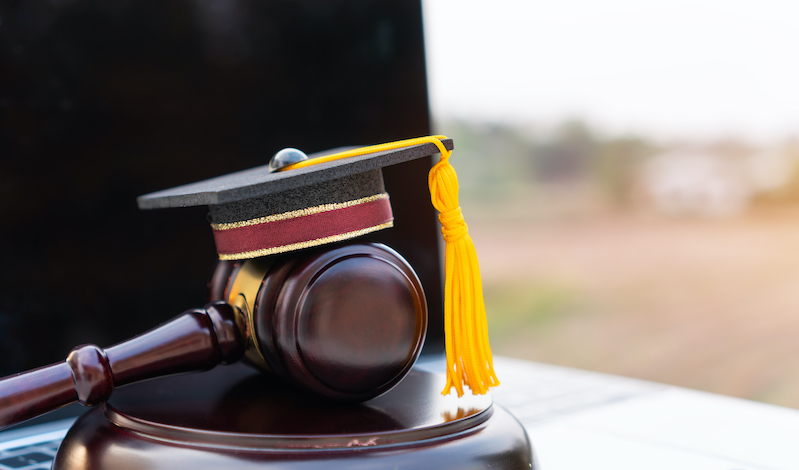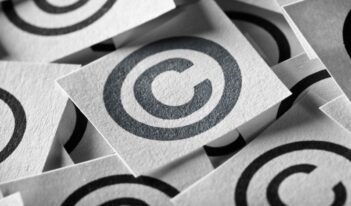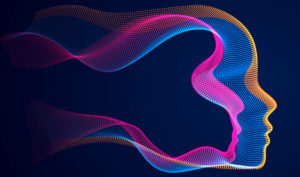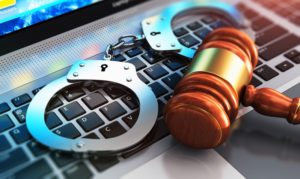
A new U.S. Copyright Office rule allows law students to appear before the Copyright Claims Board.
Law students just got a bit more practice ready.
The U.S. Copyright Office recently issued a final rule that allows law students to represent clients before the Copyright Claims Board (CCB).
The CCB—a new tribunal established by the U.S. Congress in 2020—will soon start to serve as an alternative forum to federal court for small copyright disputes where total monetary damages are $30,000 or less. Although the CCB has not yet started to hear claims—which are scheduled to begin later this year—the new tribunal system promises to alleviate issues related to accessibility and cost.
Copyright law is designed to protect works of original authorship, and copyright infringement cases must be brought in federal court. But this can be a costly and time-intensive option for individual creators seeking to protect their rights in copyright disputes, such as for photographers who find their images wrongly shared across the internet.
A 2013 report issued by the Copyright Office proposed the idea of a small claims tribunal system as an alternative to federal litigation to resolve smaller copyright infringement claims. Using the framework proposed by the Copyright Office, Congress passed the Copyright Alternative in Small-Claims Enforcement (CASE) Act to establish the CCB within the Copyright Office.
Although the CASE Act directs the Copyright Office to issue regulations that govern the proceedings of the tribunal, the CASE Act requires that claimants have the option to elect an attorney or law student “qualified under applicable law” as representation before the CCB.
Law students—primarily those working through law school clinics and pro bono legal services organizations in which students are supervised by attorneys—play an important part in providing expanded legal access to frequently underserved members of the public.
In December 2021, the Copyright Office issued a notice of proposed rulemaking that proposed setting threshold eligibility requirements for law students and their supervising attorneys. Commenters generally supported the proposed regulations, and the Copyright Office adopted several of the commenters’ suggestions into the final rule that established law student eligibility requirements.
As dictated in the CASE Act, law students must provide representation on a pro bono basis, meaning that students are not monetarily compensated for their work. Qualified attorneys—such as law school professors or current practitioners—must also supervise law student representatives and accompany them to any CCB hearings. Clients will also need to consent to law student representation.
Law student representatives are also required to meet a standard of competency prior to appearing before the CCB. The final rule provides that law students must have completed their first year of law school, reviewed the CASE Act and relevant regulations, and received training in relevant copyright law. But the Act permits supervising clinics and pro bono organizations to determine what qualifies as training in copyright law. An example offered in comments to the proposed rule includes having students take a class in intellectual property law.
To facilitate claimants who need assistance in representation, the CCB will create a directory of participating law school clinics and pro bono organizations that are available to provide law student representatives. The CCB will make the directory available on its website.
The directory will not, however, be the only online feature of the CCB. In fact, the CCB will conduct all procedures online, and the CCB will hold hearings remotely through video conferences.
The CCB has additional attributes that separate it from federal court. Although the CCB will have three Copyright Claims Officers to serve as the tribunal’s judiciary panel, these officers are appointed for six-year renewable terms by the Librarian of Congress on the recommendation of the Register of Copyrights.
In addition, the CCB will be limited to hearing only three types of claims: claims of copyright infringement, claims seeking a declaration of noninfringement, and claims over misrepresentations when filing a takedown notice under the Digital Millennium Copyright Act.
The final rule took effect on May 9, 2022, and the CCB is scheduled to begin accepting claims this spring.



